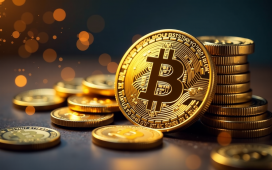Drivechain, a Bitcoin improvement proposal that presents a way of scaling Bitcoin using sidechains, level two blockchains that receive bridged tokens from a parent chain, is generating a loud buzz on social media from supporters and detractors. While Paul Sztorc, the author of the Drivechain proposal, states that its concept seeks to drive all innovation toward Bitcoin, some believe it might give rise to complexity and other unintended consequences.
What Is Drivechain?
Drivechain is the name of an improvement proposal (BIP 300) in development since 2018 that seeks to advance Bitcoin features without modifying its core design. Written and proposed by Layer Two Labs founder and CEO Paul Sztorc, the Drivechain implementation aims to scale Bitcoin through sidechains, adjacent blockchains that would be created and eliminated using Bitcoin code.
Drivechain has been purposefully written with minimal changes to the base layer in mind while still requiring a soft fork to be activated. The changes can be forked in and out if something is not going right, as Sztorc himself stated, “posing no risk to Bitcoin.”
Sidechains will be validated and supported by blind merged mining (BIP 301), which allows miners to use Bitcoin’s hash power to secure sidechains without running a full sidechain node. This includes the benefit of receiving fees in bitcoin.
The Drivechain implementation includes six new blockchain messages that manage the creation and destruction of sidechains, bridging funds from Bitcoin to sidechains, and vice-versa.
A Solution for Several Problems
One of the problems that Drivechain aims to solve, according to Sztorc, is the lack of innovation that Bitcoin has experienced since its creation, and also the dilution of efforts that it has suffered due to the difficulty of implementing changes in Bitcoin’s layer one, causing innovation to happen elsewhere.
This inability to change for innovation, presented by Storcz as a “heterogeneity” problem in one of his presentations, implies that core developers refuse to change Bitcoin due to various factors. Implementing Drivechain would ostensibly allow anyone to build permissionlessly on top of Bitcoin, bringing innovation and new features that can fail without compromising the base layer.
Scaling, one of the main issues Bitcoin faces compared to other chains, could also be addressed with Drivechain, allowing for constructing sidechains with bigger block sizes and onboarding users directly to these.
Also, the sidechains created would add value to the Bitcoin ecosystem, with coins like Monero and other tokens being built on top of Bitcoin and miners benefitting from collecting fees from all of these chains.
The Discussion
While Drivechain presents many benefits, the Bitcoin community is torn about the form of the proposal, with many being dismissive of the changes it might bring.
For example, Cory Klippsten, CEO of Swan.com, said that the approval of the Drivechain implementation might bring undesired activity to Bitcoin. He stated:
Having lots of scams on Bitcoin will make people and regulators (understandably) think that Bitcoin is full of scams.
Bitcoin enthusiast Hodlonaut called out the unintended consequences of the changes brought by the hypothetical implementation of Drivechain, stressing that “any small change to the code will have an exponential outcome in terms of risk” and that Bitcoin supporters should be “extremely careful and conservative … of the risks involved” with this modification.
However, some support Drivechain as part of increasing the network effect of Bitcoin. Fiatjaf, the creator of the decentralized social media protocol Nostr, stated:
If Drivechain is successful, it may end up bringing much more people to Bitcoin. Why would we want these people to come to Bitcoin? Because they will increase Bitcoin’s network-effect.
For Sztorc, the outcome is already clear: the Drivechain proposal is “inevitable” and will eventually be activated, as it pays fees to miners and allows for direct onboarding of funds to sidechains on top of Bitcoin.
What do you think about the Drivechain improvement proposal? Tell us in the comments section below.











